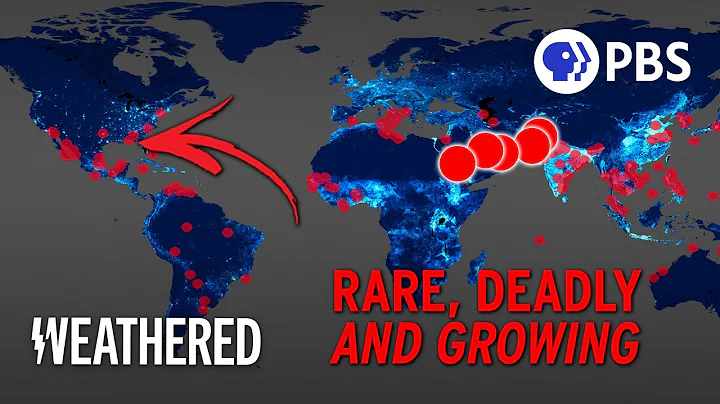
In 1976, Shanghai
Mr. Saito Koichi was a very important professional photographer in the contemporary Japanese photography world, especially in the field of portraiture, he established a unique style. Mr. Saito was born in Tokyo in 1935. He graduated from the Photography Department of the Faculty of Arts of Nihon University in 1960. During his student days, he served as an assistant to the famous photographers Hayashi Tadahiko and Akiyama Shotaro. After graduation, he became a professional photographer.
In the early days of Japanese pictorials and major magazines, Mr. Saito published works almost every week. Among them, the portraits he took were well received, including the famous writers Kawabata Yasunari , Mishima Yukio , Inoue Yasushi , Nosaka Akira For example, portraits of Endo Shusaku , Shiba Ryotaro , and celebrities from all walks of life such as Matsushita Konosuke, Kurosawa Akira, Ichikawa Kun, Fujiko Fujio, Kitano Takeshi, Wang Sadaharu, Okamoto Taro, Ando Tadao, Ikeda Daisaku and other people have left vivid expressions in front of his camera.

▴In 1965, Shanghai held a grand welcoming ceremony to welcome the delegation visiting Saito Koichi.
In 1965, China and Japan had not yet formally established diplomatic relations. Premier Zhou Enlai decided to develop people-to-people relations between the two countries and actively invited pro-China Japanese friends to visit. The first Sino-Japanese Youth Gala was held in the same year. A group of Japanese left-wing youth groups, including a group of young artists, dancers, photographers, etc., transited through Hong Kong and entered the mysterious China in the eyes of the outside world via the Luohu Pass. Saito Koichi is one of them. He carries a camera on his back and embarks on a journey to China.
Saito walks around the streets with his camera and uses gestures to communicate with the subjects he likes. In order to make the subject feel close to him, he also borrowed the rickshaw driver's coat and put it on. From children playing at the front door of Beijing to Shanghai militiamen in training, from rickshaw drivers on the streets of Guangzhou to women washing clothes by the Yan'an river... Saito focused his camera on the lives of ordinary people, leaving behind precious pictures.

▴The welcome ceremony in 1965

▴In 1965, A family portrait of an ordinary family in Shanghai.

▴In 1965, several children on the front of the Beijing machine were fetching water, with Chongwenmen in Beijing in the background.

▴In 1965, Beijing city wall side

▴In 1965, soldiers sitting in Tiananmen Square were resting.

▴In 1965, an uncle pushed his grandson for a walk in Tiananmen Square.

▴In 1965, pedestrians riding bicycles on the streets of Beijing.

▴Tourists on Tiananmen Square in 1965.

In 1965, Beijing citizens waited for the bus outside Xuanwumen.

▴In 1965, a family of Yan'an residents lived in a cave dwelling.

▴In 1965, a woman washed clothes in Yanhe .

▴In 1965, children on the streets of Guangzhou.

▴In 1965, a tricycle driver on the streets of Guangzhou.

▴In 1965, a canteen in Hangzhou was making noodle soup .

▴In 1965, A woman was knitting in an alley in Hangzhou.
At that time, he may not have thought that in the next 40 years, he had been to China more than 80 times, traveled all over China, and photographed tens of thousands of works. In order to faithfully record the changes in ordinary people's lives, although it was not a planned photography, but Unintentionally showing touching images of folk history - which makes Saito Koichi's photography even more valuable. In addition, the cities he photographed cover all provinces and regions in China. As far as a single foreign photographer's photography of China is concerned, his coverage Its broad scope and long-lasting nature are extremely rare.

△ In 1978, Beijing, soldiers waited to take photos at the state-run photo booth on Tiananmen Square.

△ In 1979, in Lanzhou, a local man wearing a suit and taking photos attracted onlookers. Subtle changes are taking place in the way people dress.

△ In 1979, Hohhot, pedestrians on the square in front of the mosque.

△ In 1983, Shanghai, on a rainy day, pedestrians shuttled on Huaihai Middle Road .

△ In 1983, in an alley in Hangzhou, a little girl was doing homework outdoors.

△ In 1983, Shaoxing , workers were carrying Shaoxing wine to the ship.

△ In 1985, Chengdu, a roadside vendor displayed various precious medicinal materials for treating bone injuries.

△ In 1985, Kunming, there were two children eating noodles on the side of a street with a sense of the times.

△ In 1985, Suzhou, the afternoon sunshine fell on the streets, the shadows of the trees swayed, and the tide of bicycles going home from get off work flowed through.

△ In 1985, in Suzhou, an old man took advantage of the good weather and hung up his quilt in front of his house.

△ In 1985, Suzhou, a beautifully dressed little girl walked on the stone bridge.

△ In 1985, Suzhou, "Bang Ye" in front of a small shop.

△ In 1986, Guangzhou, street vendors and traditional small grocery stores were once one of the characteristics of this southern commercial city.

△ In 1988, Yangzhou , people chatting on stone benches on the roadside and tricycle drivers resting on the street.

△ In 1991, Shanxi, outside Puhua Temple in Mount Wutai, a man rode a bicycle on a simple wooden bridge.

△ In 1991, in Wutai Mountain, Shanxi, a sister was washing clothes in her backyard, next to her two younger brothers.

△ 1993, Chongqing, crowded ferries.

△ In 1993, people were waiting for the ferry on the pier in Chongqing.

△ In 1994, tricycle drivers and tourists in a hutong in Beijing. At that time, "hutong tourism" had just emerged and was very attractive to foreign tourists.

△ In 1994, in Tiananmen Square, Beijing, the middle school teachers and students who came here were very excited.

△ In 1995, Dali, during the busy farming period, a young man took a nap next to him.

△ 1995, Dali, old people resting under the wall.

△ 1996, Yunnan, Xishuangbanna Water Splashing Festival, men, women, old and young enjoy this cool festival together.

△ In 1997, a man and his donkey in Honghe Hani and Yi Autonomous Region, Yunnan Province.Yunnan's terrain is rugged, and most residents keep donkeys or horses in their homes to carry goods.

△ In 1997, in the Honghe Hani and Yi Autonomous Region of Yunnan Province, boys climbed up a tree to play next to their vegetable garden.

△ 1998~2001, Qinghai, Tibetan herders and children.

1998 Taiyuan

1998 Guiyang

1999~2001 Shanghai

1999 Beijing

1999 Shenyang

1999 Harbin

 999 Fujian
999 Fujian

 000 Urumqi
000 Urumqi

 000 Hotan
000 Hotan

2000 Kashgar

2002 Harbin

2008 Beijing

in 2009 Shanghai

in 2010 Chengdu

in 2011 Shanghai

 012 Shanghai
012 Shanghai











